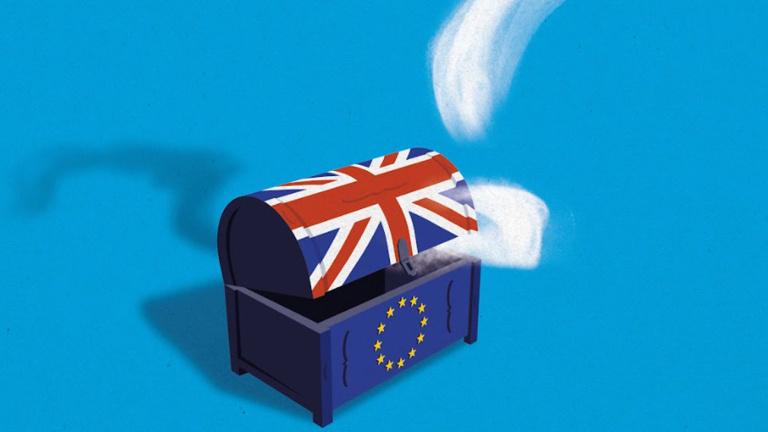
Increased uncertainty for a changing Caribbean
Brexit comes at a time when the Caribbean is facing many economic and political challenges. This makes it essential to achieve a rapid rollover of economic partnership agreement (EPA) equivalence in trade and to reach new understandings on UK development assistance.
For most members of CARIFORUM (Caribbean Community – CARICOM – plus the Dominican Republic), Britain’s decision to leave the EU has added to a growing list of uncertainties. It is occurring at a time when international economic and political relationships are in flux, trade wars that indirectly touch the region are emerging, rules-based systems are breaking down, and there are significant divisions within the Caribbean over the failures and future of the Caribbean Single Market and Economy (CSME).
It is also happening as new and important trade and investment partners, most notably China, are emerging in the region; at a time when the US administration is seeking to assert much greater hemispheric influence regionally, particularly in respect to the region’s ties to Venezuela; and just as the Caribbean needs to achieve international agreement on practical support for low-lying states facing the existential threat posed by climate change.
Such concerns coincide with a recognition that the supportive voice Britain offered within the EU in relation to the region’s trade and development challenges will soon disappear.
Brexit uncertainty increases likelihood of an EPA trade rollover, post-2020
Until the end of 2020 the Caribbean’s trade and development relationship with the UK will continue to be governed by the EU-CARIFORUM Economic Partnership Agreement (EPA). However, Britain and CARIFORUM cannot meaningfully discuss their post-2020 trade relationship until the UK and EU 27 agree on whether Britain will remain in the customs union or establish some sort of politically-led bespoke trade relationship, or alternatively, go the hard Brexit route.
Several high-level exchanges have already taken place between Caribbean and British ministers and officials. These point to a general commitment by London that that the nations of CARIFORUM will be no worse off in a new trade and development relationship with Britain.
More specifically London has said it will ‘seek to maintain current market access… to ensure continuity of the effects of the EPA’, and both sides have agreed that technical discussions will focus on avoiding disruption, rather than providing an opportunity to renegotiate trade terms.
In the face of the complexity of what Britain is trying to achieve with the EU 27 and globally, this would seem to mean that the most likely short-term outcome for the Caribbean, given its relative economic insignificance to the UK, will be to reach an agreement in early 2019 on something close to EPA trade equivalence.
Although the region and the UK are thinking in terms of a rollover of existing arrangements, and at a later date enhancement particularly in relation to services access, much less is clear on how the non-trade parts of the existing hybrid EPA text, which includes language on development and political objectives, will be set aside.
Given that the UK’s development policy is also in flux, one suggestion is that it may be possible to agree on some type of grandfather clause ensuring that previously EU-negotiated trade commitments such as those contained in the EPA, become part of UK legislation in the short to medium term.
Assuming, however, that EPA trade equivalence can be delivered, other more practical issues will then arise.
In its finite transition period out of the EU, the UK has to accept the administrative burdens of becoming a stand-alone state and determine how its pared down bureaucracy will cope with new administrative decisions in real time.
This means in practical terms that Caribbean exporters of goods and services are unlikely to know for some time yet about matters as basic as documentation requirements, how goods currently shipped onwards from the UK to continental Europe will be treated, and if and at what point additional tariffs or fees may have to be paid.
It is also far from clear what more general changes might occur in relation to labelling, commercial shipping routes, air services agreements, standards, administrative law, the free movement of goods into the EU 27, and the movement of capital, let alone the future cost of doing business with or through the UK.
Trade opportunities and challenges
To some extent, whatever is finally agreed may be academic, as the export of Caribbean goods to the UK and to the EU 27 continues to decline, despite the EPA.
Recent EU statistics confirm that of the goods exports from CARIFORUM to the EU, the UK continues to account for 21-23%. In 2015, CARIFORUM nations exported goods worth some US $3.1 billion to the EU, of which US $718 million went to the UK. However, if shipments of oil, refined products, and chemicals are set aside it becomes clear that the UK remains principally a market for Caribbean primary agricultural produce, some processed foods, and higher value products such as rum. Furthermore, Caribbean exports are heavily weighted towards the Dominican Republic.
This implies that in the absence of some form of EPA trade equivalence with the UK, the Caribbean exports that could be hardest hit in the event of the UK having to adopt Most Favoured Nation (MFN) tariffs would be bananas and other fruits, fish products, prepared foodstuffs, clothing, and footwear.
While Caribbean Export and other better-resourced national trade bodies in Jamaica and the Dominican Republic continue to focus on diversifying and encouraging higher value-added exports, the general view is that there is little in Brexit that will alter the present nature of trade flows if EPA trade equivalence is achieved.
In the longer term, and more significantly perhaps, there is a sense that if eventually the UK’s EPA services offering could be enhanced this could have a positive effect on trade, although to date the sparse information available suggests that the Caribbean has taken little advantage of the UK’s or the less significant EU 27 EPA offers of services market access, other than in respect to tourism from Europe.
Future of Caribbean-EU relations at a juncture
Brexit will be taking place as the Caribbean and its partners in Africa and the Pacific (the ACP) will be negotiating with the EU 27 towards a very different form of post-Cotonou, post-2020, political and development agreement. These negotiations are bound to start after the Summer of 2018.
Given the Caribbean’s limited negotiating capacity and the UK’s apparent offer of EPA trade equivalence, it is likely that the region will place much more weight on discussing development issues with both the UK and the EU 27. In a Brexit context the region will certainly wish to secure an appropriate proportion of Britain’s present €4.5 billion contribution to the European Development Fund (EDF) post-Brexit, while ensuring that it is no worse off in relation to the next EU 27 funding round. It will also want to know specifically how such support might relate to what it sees as the region’s ‘inherent and exogenous vulnerabilities’.
A new form of ‘special relationship’
For decades now, Britain has been engaged in a form of post-colonial withdrawal from the region and a reformulation of its engagement. Today, its main policies seek enhanced economic development through the private sector to support regional stability; security cooperation; support for the maintenance of common values such as parliamentary democracy and human rights; work on common concerns including climate change; low levels of development support; hurricane relief; and where possible, mutual support in multilateral institutions including the UN.
Seen from a Caribbean perspective, relations remain positive, but generational change, shifting trade and investment flows, and the arrival of newer external trade and development partners are causing Britain to become just one of many actors in the region. Its significance has therefore diminished.
This suggests that in the medium term, some new but reduced form of special relationship with the UK will evolve post-Brexit. Still missing, however, is any certainty about precisely what Brexit will mean, and how the region intends to go about improving its relations with other European nations that might in the future play a role on its behalf within the EU 27.
About the author
David Jessop consults for the Caribbean Council and writes on regional issues.
Read the full magazine issue




